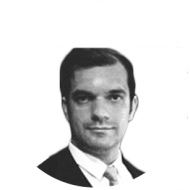|

Filipe Teixeira
|
Filipe Teixeira is a young Theoretical and Computational Chemist with a PhD in Sustainable Chemistry granted by the University of Porto and NOVA University of Lisbon (Portugal), with pre-doctoral experience in tutoring, Food Chemistry, Organic Synthesis, and Environmental Chemistry. During his graduate research, he approached the difficulties and limitations of the first-principles study of Jacobsen catalyst using a combination of Density Functional Theory (DFT), Bader's Quantum Theory of Atoms In Molecules (QTAIM) and Multivariate Analysis techniques. His current research interests include the refinement of Gillespie's VSEPR-derived model for the inner Valence Shell of transition metal atoms; the development of novel theoretical approaches for the study of graphene-derived materials, vibrational analysis and the QTAIM description of intermolecular interactions, with the long-term vision of contributing towards an improved dialogue between chemists following different specialities, both in the theoretical and experimental realms.
|